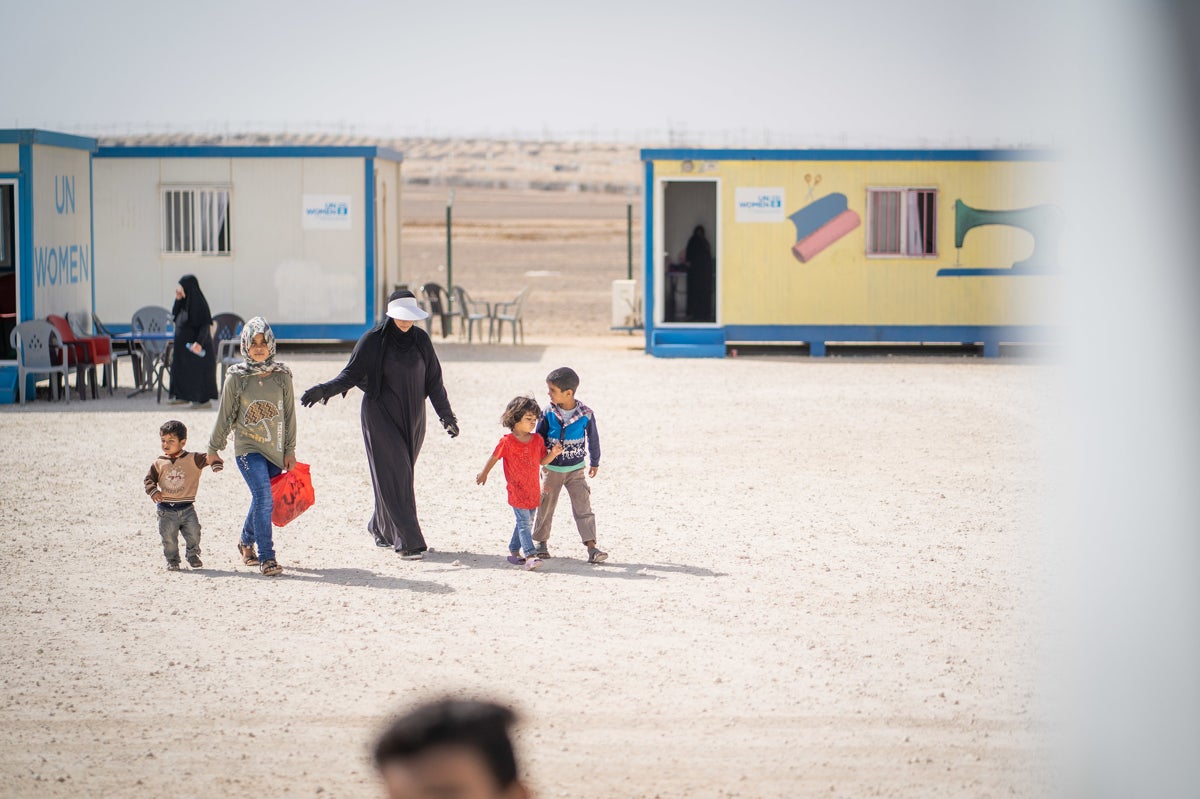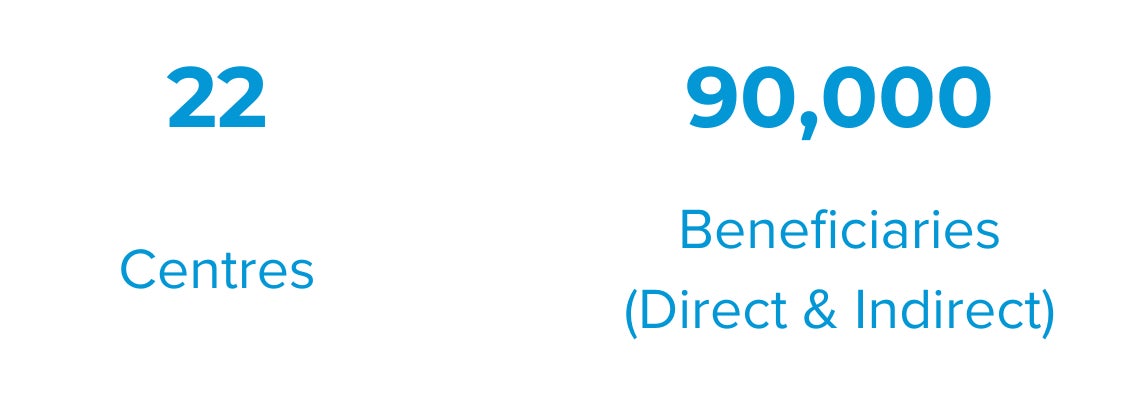
Humanitarian Action

Jordan has emerged as a steadfast host community, accommodating approximately 1.4 million Syrians who now constitute over 10% of its population. This significant demographic shift has placed increased demands on the country's socio-economic structures, particularly in areas such as employment, social services and community resources.
Women, especially those who are refugees or belong to Jordanian vulnerable groups, face compounded challenges; including limited access to economic opportunities and increased exposure to gender-based violence (GBV). As a result, these women are often forced to rely on harmful coping strategies like child labor and early marriage.
Gender inequality in Jordan's labor market further exacerbates these issues, with women facing a high unemployment rate of 22.3%. This is especially critical for female-headed households, who deal with restrictive social norms, lack of childcare, transportation difficulties and poor working conditions.
These intersecting challenges not only threaten household stability but also strain social cohesion and economic resilience. High unemployment rates contribute to negative social behaviors, exacerbating vulnerabilities for women, children and marginalized groups. Issues like violence against women, child marriage and the struggles faced by individuals with disabilities highlight the urgent need for targeted, inclusive interventions.
Response:
Empowering Vulnerable Women in Jordan Through Humanitarian and Resilience-Building Efforts
UN Women implements the Oasis programme with its strategic partner the Ministry of Social Development (MoSD) in host communities and with its partner ACTED in refugee camps. The programme ensures that humanitarian and resilience-building efforts in Jordan effectively address the needs of vulnerable Jordanian women and Syrian women refugees, focusing on promoting social stability and economic development in Jordan.
In host communities, UN Women's strategic partnership with the Ministry of Social Development (MOSD) facilitates the rollout of the Oasis model to 18 community centers across 11 governorates, focusing on MOSD community centers in Jordan’s most vulnerable districts. In refugee camps, the programme is implemented in partnership with ACTED, in coordination with key partners such as UNHCR and SRAD, to address the challenges faced by women and girls.
The Oasis centers serve as multi-sectoral service hubs, offering needs-based cash-for-work programmes and skills development. They prioritize protection awareness for the most vulnerable women and girls while also engaging men and boys in dialogue and advocacy to promote gender and social equality.
Key areas:
- Coordination: Close collaboration with national stakeholders and other humanitarian actors to ensure gender responsive refugee response planning and programming. Find out more here.
- Livelihood Opportunities: Providing secure livelihoods through cash-for-work programmes that transition into sustainable employment opportunities, including second chance education, job placements, entrepreneurship and work permit applications.
- Protection: Offering services focused on preventing gender-based violence, raising awareness and providing protection for vulnerable groups.
- Leadership and Civic Engagement: Linking education opportunities to the labor market while fostering leadership and civic engagement for women. Men are also actively engaged in addressing social issues related to gender equality and women’s empowerment.
National Partners
ACTED and the Ministry of Social Development (MOSD)
Thanks to the support of
The EU Commission, the Australian Department of Foreign Affairs and Trade, and the governments of Canada, Finland, France, Iceland and Italy.
This programme has been impactful.
